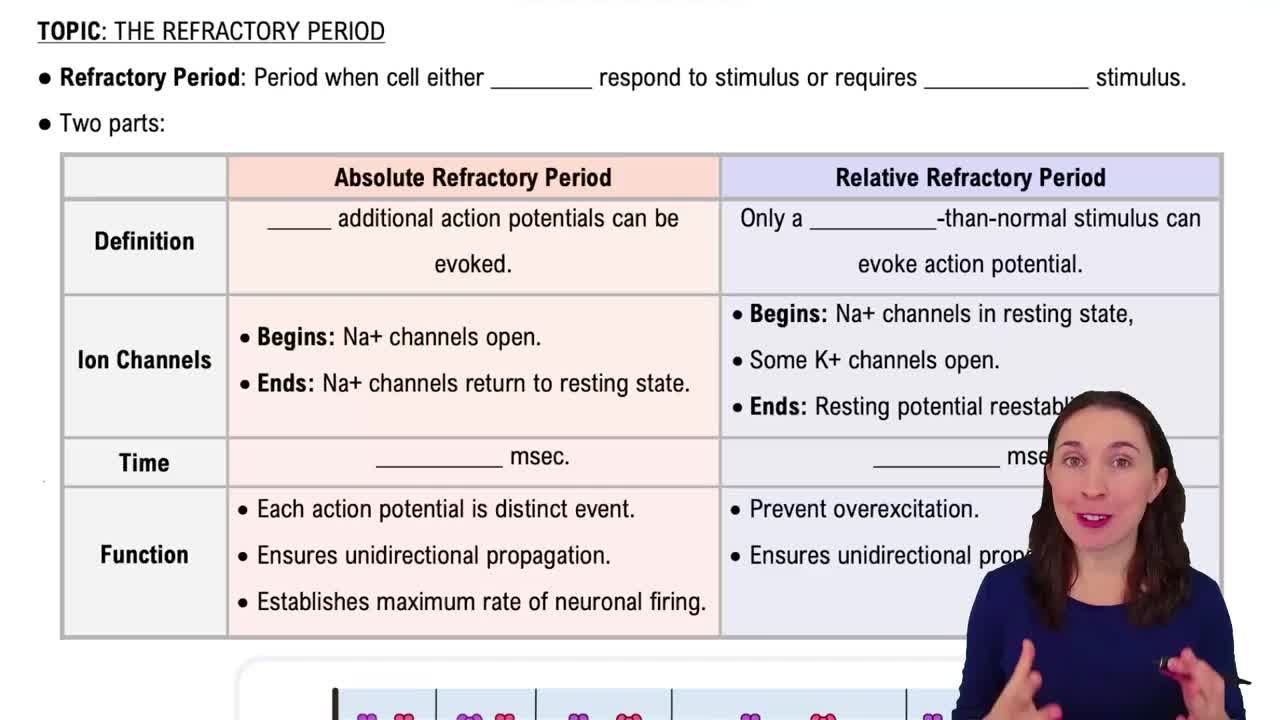The Refractory Period definitions Flashcards
 Back
BackThe Refractory Period definitions
1/12
Terms in this set (12)
- Refractory PeriodA phase during an action potential where a neuron is less responsive to stimuli, ensuring distinct action potentials.
- Action PotentialA rapid rise and fall in voltage across a cell membrane, essential for nerve signal transmission.
- Absolute Refractory PeriodA phase where no new action potentials can be initiated, ensuring unidirectional signal propagation.
- Relative Refractory PeriodA phase following the absolute period where a stronger stimulus is needed to initiate an action potential.
- Voltage-Gated Sodium ChannelsMembrane proteins that open in response to voltage changes, crucial for action potential initiation.
- Resting StateThe state of a neuron when it is not transmitting an action potential, typically at -70 millivolts.
- HyperpolarizationAn increase in membrane potential making the inside of the cell more negative, occurring during the relative refractory period.
- DepolarizationA decrease in membrane potential, making the inside of the cell less negative, essential for action potential initiation.
- Unidirectional PropagationThe one-way travel of an action potential along an axon, ensured by the refractory periods.
- Neuronal Firing RateThe frequency at which a neuron can generate action potentials, limited by the absolute refractory period.
- Potassium ChannelsMembrane proteins that allow potassium ions to pass, involved in returning the cell to resting potential.
- ThresholdThe critical level to which a membrane potential must be depolarized to initiate an action potential.


